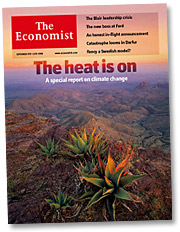 According to a recent news release, Ikea will be investing up to 50 million Euros over the next five years into cleantech. Their plan is to focus on solar panels; alternative light sources; product materials; energy efficiency; and water saving and purification.
According to a recent news release, Ikea will be investing up to 50 million Euros over the next five years into cleantech. Their plan is to focus on solar panels; alternative light sources; product materials; energy efficiency; and water saving and purification.
As the world’s largest furniture manufacturer and as an adoptee of the natural step, the concept of cleantech fits. Cleantech defines itself as:
Cleantech is new technology and related business models offering competitive returns for investors and customers while providing solutions to global challenges. Where greentech, or envirotech, represents the highly regulatory driven, “end-of-pipe” technology of the past with limited opportunity for attractive returns, cleantech is driven by market economics therefore offering greater financial upside and sustainability.
The concept of cleantech embraces a diverse range of products, services, and processes across industry verticals that are inherently designed to,
- Provide superior performance at lower costs
- Greatly reduce or eliminate negative ecological impact
- Improve the productive and responsible use of natural resources
With 270 stores in 35 countries, and half a billion customers per year, Ikea is well placed to push cleantech into the mainstream. As well, if Ikea is moving to invest in cleantech technologies that can be rapidly pushed out into the marketplace at competitive prices (and therefore returns), it should not be too long before their competitors get into the game and attempt to provide alternatives to their customers.





